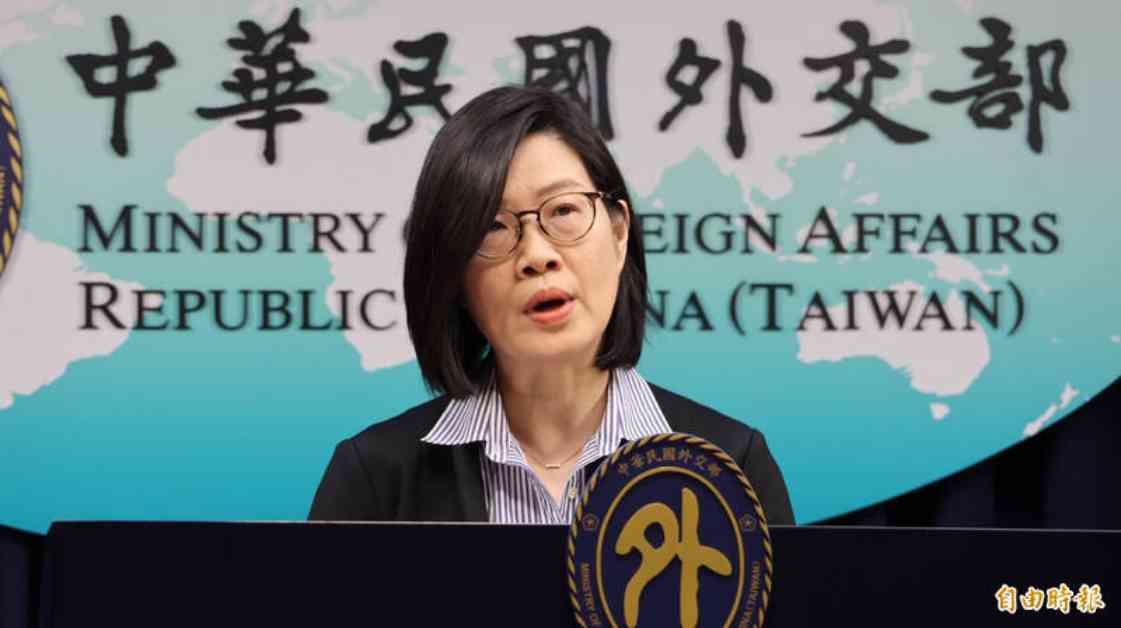The US House of Representatives passed the Taiwan Invasion Deterrence Act on September 9th, aimed at deterring Chinese aggression towards Taiwan. This legislative move reflects the international consensus on Taiwan’s peace and stability, according to Wang Liangyu, the Director of the North America Division at the Ministry of Foreign Affairs.
Implications of the Taiwan Invasion Deterrence Act
The Taiwan Invasion Deterrence Act focuses on economic measures to prevent Chinese encroachment on Taiwan’s sovereignty. By cutting off senior Chinese officials’ access to the US financial system and freezing their assets, the act aims to deter China’s ambitions in Taiwan. Wang Liangyu emphasized that this legislation underscores the global recognition of Taiwan’s peaceful and stable status.
The economic aspect of the act is crucial in dissuading China from attempting to invade Taiwan. By targeting the financial interests of Chinese officials, the US aims to put pressure on China to refrain from any military aggression towards Taiwan. This strategic approach aligns with the broader goal of maintaining peace and stability in the Indo-Pacific region.
US-Taiwan Relations and Regional Stability
The Ministry of Foreign Affairs expressed gratitude towards the US Congress for consistently using legislative measures to uphold peace and stability in the Indo-Pacific region. The passage of the Taiwan Invasion Deterrence Act signifies a strong commitment to supporting Taiwan’s security and deterring Chinese aggression. Moving forward, Taiwan will continue to engage with the US Congress and administration to deepen the bilateral partnership and ensure the freedom, openness, and peace of the Indo-Pacific region.
The Role of Legislation in International Relations
Legislation plays a crucial role in shaping international relations and addressing security challenges. The passage of the Taiwan Invasion Deterrence Act reflects the US government’s commitment to supporting Taiwan’s security and deterring potential threats from China. By enacting targeted economic measures, the US aims to send a clear message to Beijing that any aggression towards Taiwan will not be tolerated.
Taiwan’s Strategic Importance in the Indo-Pacific Region
Taiwan holds a strategic position in the Indo-Pacific region, serving as a key player in maintaining regional stability and security. The international community recognizes Taiwan’s contributions to the global economy and values its commitment to democracy and human rights. By supporting Taiwan’s security and deterring potential threats, the US and its allies aim to safeguard the principles of freedom, openness, and peace in the region.
The Future of US-Taiwan Relations
The passage of the Taiwan Invasion Deterrence Act underscores the strong partnership between the US and Taiwan in promoting regional security and stability. As both countries continue to deepen their cooperation in various fields, including defense, trade, and technology, the bond between them will only strengthen. By working together, the US and Taiwan can effectively address shared challenges and advance common interests in the Indo-Pacific region.
Conclusion
The passage of the Taiwan Invasion Deterrence Act by the US House of Representatives marks a significant step towards bolstering Taiwan’s security and deterring Chinese aggression. This legislative move reflects the international consensus on Taiwan’s peace and stability, highlighting the importance of upholding the rules-based order in the Indo-Pacific region. As Taiwan continues to play a vital role in regional security, the US and its allies will work closely with Taiwan to ensure a free, open, and peaceful Indo-Pacific.












